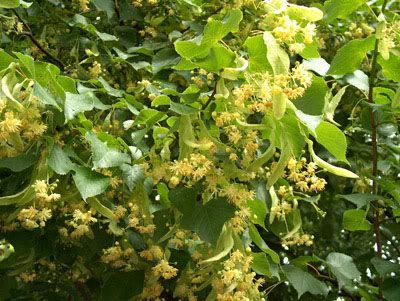I have totally enjoyed spending most of today re-reading Frances Mayes'
Bella Tuscany, The Sweet Life in Italy.
Travel has a lot in common with meditation, actually.
And suddenly I had to also pick up Jane Hirshfield's
Nine Gates, Entering the Mind of Poetry and
Wherever You Go There You Are, Mindfulness Meditation in Everyday Life, by Jon Kabat-Zinn, re-reading long chapters as the synchronicity of ideas flowed. I remembered and connected thought and had to seek out the quote.
Mayes makes the observation that it can be dangerous to travel, quoting Gerard Manley Hopkins who advises: Look long enough at an object until it begins to look back at you. Mayes says a strong reflecting light is cast back on what we perceive as real, sometimes a disquieting experience.
"we are profoundly displaced when we travel and denial of that displacement sets
in quickly. If only we could recognize this--suspend the rush to judgment
and compartmentalizing. Travel can reinforce the primitive urge to bring
the new into the circle of the known."
It is no accident, that the journey metaphor is used in all cultures to describe life and the quest for meaning. A passionate traveler wants to be changed, perhaps even seeking salvation.
Both Kabat-Zinn and Hirshfield quote Dante's opening lines to his
Divine Comedy, "Inferno":
In the middle of this road we call our life
I found myself in a dark wood
With no clear path through.
Kabat-Zinn talks of the practice of meditation as a Way of being, a Way of living, a Way of listening, walking along the path of life and being in harmony with things as they are.
While our thinking colors all our experience, more often
than not our thoughts tend to be less than completely accurate. Usually
they are entirely based on uninformed private
opinions and prejudices
based on limited knowledge and influenced primarily by our past
conditioning. All the same, when not recognized as such and
named, our thinking can prevent us from seeing clearly in the present
moment....Just being familiar with this deeply entranched pattern and watching
it as it happens can lead to greater non-judgmental receptivity and
acceptance....we can act with much greater clarity in our own lives, and be more
balanced, more effective, and more ethical in our activities, if we know that we
are immersed in a stream of unconscious liking and disliking which screens us
from the world and from the basic purity of our own being....that prevents us
from seeing things as they actually are and mobilizing our true potential.
Hirshfield quotes Robert Lowell as saying "Why not say what happened?" She says,
if the thought is interpreted deeply and widely enough, with freedom and grace;
if we are willing to live with the lion, the tiger, the wild and unbeckonable
dolphin--something unknowable may come of such a path, of its suffering that is
also the blessing.
In her essay on shadow and light in poetry, how the awareness of heaven and hell, how the relationship between the two "ripens us--as human beings, as readers, as writers--into a more fully realized aliveness," Hirshfield notes that poems that give us a glimpse of 'heaven', come from a path of "willingness to include its opposite, to live for as long as is necessary in silence, in patience, in raging in the dark--not attempting to turn away, not attempting to exclude the difficult parts of our knowledge of what the world is." She comments that some of our best loved poems are written by writers who are deeply and cruelly flawed. And yet, yet!
It is not a trick of the craft, but the acutely honest and tenderly painful work of turning the light of their poetry upon themselves, Larkin doing "the one thing he is able to do; he lives with himself as best he can, and looks at it all." This,she convinces me, is how anger and shame can be mysteriously be changed into openness, light, blessing. By admitting his own complicity, not letting himself at his worst off the hook or avoiding himself at his worst, the poet wins the reader's compassion and pity, and the poem expands into a larger knowledge and grace. The openness of the poem becomes a gift and blessing to the poet as well as the reader.
All this takes me back to an experience I've had over the last several months. "Sarah", a colleague, perceives herself as outside the team and several of our team-mates have bluntly expressed the feeling that "Sarah" is not part of the team. "Sarah's" life is an open book to her colleagues, even though she has the right, and has chosen to keep the sordid details of her private life to herself. Yet, her life is an open book.
I'll explain.
A few years ago I went to a Sark conference, where she had us participate in an exercise where we chose as a partner a complete stranger. The stranger then did a "reading" of who we were, what we do, what our dreams might be, etc., whatever came up. We were struck at how accurately strangers were able to "read" us, how often deeply repressed and secret dreams were open books, even to a stranger! There was laughter and tears of relief! Our manner, our dress, our posture, our gestures, our language...dead giveaways to complete strangers. Oh, there was complicity too. Obviously, some strangers entered into the conspiracy of silence, or flattery, etc. required by our postures of self-protection. It was a profound exercise for me.
Also, several personal incidents have reinforced the fact to me, that our lives are an open book. A colleague made statements about me and my marriage to me years before I admitted the truth to myself. Several colleagues (we spend more hours with each other at work, after all, than many of us do with our families!), recently demanded "what's wrong with So-and-so? I know something is wrong!", or even went directly to that person and asked. At the same time, each colleague offered friendship, support, love, a listening ear, a hug.
Back to "Sarah". I should not have been shocked, but recently, as we talked about another colleague who had kept difficult details about her life from her mother, I expressed the opinion that a lot of problems might have been avoided if she had been open with her mother, perhaps preventing her mother from being used and taken advantage of. "Sarah" launched into a little sermon about too many in our workplace crossing the line of "professionalism", talking about their personal lives everyday to anybody who would listen, every day, every day...While I realized that there certainly are situations, and maybe this was one, where telling the mother was not possible or a good idea, I thought "Sarah's" reaction was off putting, to say the least.
It's only my opinion, of course, but I think generally there is a good balance of professional distance and personal friendship at my workplace. There are always odd cases where individuals cross the line.
However, as a rule, privacy is respected.
I think the reason "Sarah" feels invaded or persecuted or excluded or judged is largely her own doing. Having a belief, perhaps derived from her upbringing or social background, that a stiff upper lip is required, that reticence equals proper decorum and professional conduct, that divulging personal details of her life to colleagues is an invasion of her privacy and an invasion of her colleagues desire to listen...whatever it is exactly, this belief is cutting her off from perhaps her greatest lifelines. The perceptions by her colleagues vary from "she is a loafer and doesn't want to be a part of our hard-working team" to "she is a snob and social/and or professional climber who can't be trusted to not betray her colleagues to administration, etc. to serve her own ends." There are opinions and judgments all around the situation!
All I see is disconnection. As Kabat-Zinn says, we can be so closed to the wonder and vitality of fresh encounters, that if we are not careful, we can even forget that direct contact is possible.
We can live in a dream reality of own making without even a sense of the loss,
the gulf, the unnecessary distance we place between ourselves and
experience. Not knowing this, we can be all the more impoverished,
spiritually and emotionally. But something wonderful and unique can occur
when our contact with the world becomes more direct.
"Why not say what happened?" Indeed! It might surprise "Sarah" to know how well she is already "known", that her self-imposed walls are cutting her off from true support and friendship, and that her distance is impairing rather than maintaining her professional and colleageal relationships. She might indeed be relieved of the burden of trying so hard to be perfect, when we all know she isn't. Just being human is such a relief, vs trying to be right all the time, I have found. Usually, love and kindness is shut out by our own inability to touch them and be touched by them, because they are buried "below our own fears and hurts, below our own greed and our hatreds, below our desperate clinging to the illusion that we are truly separate and alone." She might be relieved of the anger and judgment that is squeezing out awareness, mindfulness, harmony and the enchantement of everyday life.
Frances Mayes closes her book by recognizing the cadence of her husband's step below on the road, hearing his voice asking "Are you home?", seeing stars streak across the sky, holding out her hand to catch one.
There's my wish. Let's catch a falling star or two. Why can't we do that
every day: at work, at home, on vacation in a foreign country, in the garden, with our lover, with our children, with our pets?
"Are you home?"







